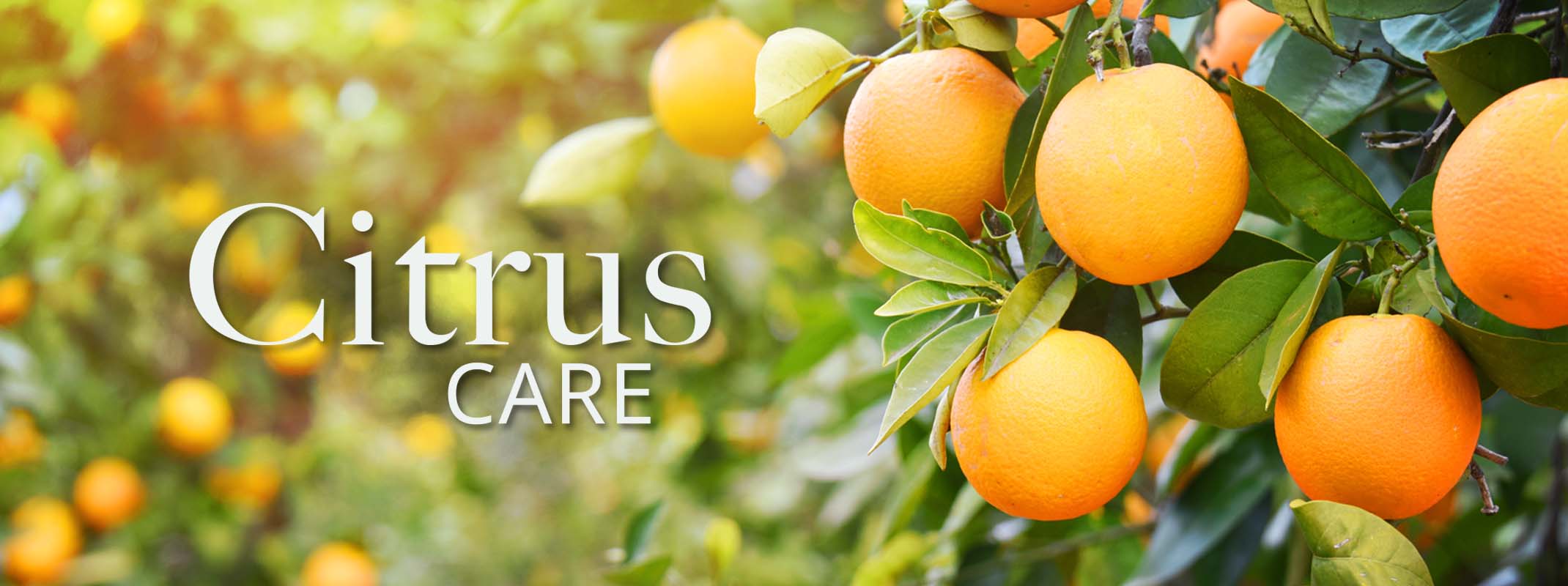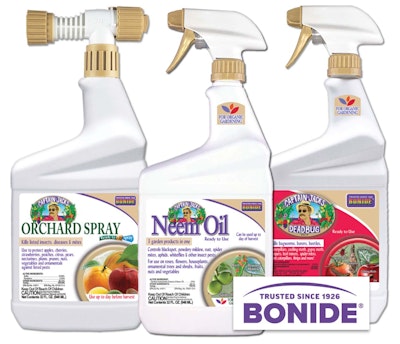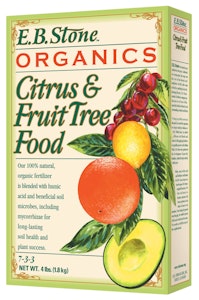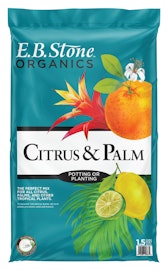Citrus Tree Care - 3 Key Steps

Citrus Tree Care
Imagine stepping outside to pick a fresh lemon from your own citrus tree. With the right guidance from SummerWinds Nursery, growing citrus trees in your yard or on your patio can be a breeze. Fresh lemons, limes, and oranges are within reach with the proper citrus fertilizer and some basic knowledge about treating and pruning. Enjoy the unparalleled taste of homegrown citrus and the satisfaction of cultivating your own fruit.
 3 Important Steps to Healthy Citrus: Prune, Treat, Feed
3 Important Steps to Healthy Citrus: Prune, Treat, Feed
Step 1. Prune:
Remove dead, diseased, or crossing branches. This improves air circulation and light penetration, which helps prevent pest and disease issues. For more general information on pruning, our How-To-Prune video.
- Suckering - Suckers divert energy from healthy branches and should be removed as soon as possible. To do this, find the graft on your citrus tree and remove any growth below that point.
- Thorns – Thorns do not cause any harm to the tree or fruit production. They are usually found only on young citrus trees and can be removed if you find them bothersome.
Step 2. Treat:
Inspect your citrus, checking leaves (especially the undersides), stems, and fruit for signs of pests and diseases. Most insect infestations can be treated with insecticidal soap or horticultural oils. For diseases, pruning affected areas and apply appropriate fungicides if necessary. Ensure good air circulation and avoid overhead watering to prevent fungal infections. We recommend Bonide's Neem & Bonide's Captain Jack's Fruit Tree Spray
Common Insects and Diseases for Citrus in the Bay Area:
Insects:
- 1. Aphids: Small, soft-bodied insects that cluster on new growth, causing leaf curling and distortion.
- 2. Scale: Hard or soft bumps on stems and leaves, which can weaken the tree.
- 3. Spider Mites: Tiny pests that cause stippling on leaves and webbing.
- 4. Leaf Miners: Larvae that tunnel through leaves, creating visible trails and causing leaf curling.
Diseases:
- 1. Citrus Canker: Bacterial disease causing raised, corky lesions on leaves, stems, and fruit.
- 2. Phytophthora (Root Rot and Collar Rot): Fungal disease-causing root decay and gumming at the trunk base.
- 3. Greasy Spot: Fungal disease-causing yellowish-brown blister-like spots on leaves.
Step 3. Feed:

Once pruning and treatments are complete, apply fertilizer around the drip line. This ensures the tree has the nutrients needed to recover from pruning and support new growth. For citrus trees, a balanced fertilizer with a ratio of 6-6-6 (Nitrogen-Phosphorus-Potassium) or 8-8-8 is ideal. However, citrus-specific fertilizers often have a slightly higher nitrogen content to promote healthy foliage and fruit production. We recommend E.B. Stone Organics Citrus & Fruit Tree Food.
Additional Care for Citrus to keep in mind…
- Watering - Water heavily every one to two weeks during the summer months and every three to four weeks during the winter months. Opt for heavy regular watering rather than short periods every day.
- Weed Control - Keep the area around the tree free of weeds, which can compete for nutrients and water. Mulch helps suppress weed growth.
- Mulching - Apply a 2-3 inch layer of mulch around the base of the tree, keeping it a few inches away from the trunk to prevent rot. This helps retain moisture and regulate soil temperature.
Planting New Citrus
When planting your citrus tree, dig a hole that is twice the width of the container and the same height as the container. To avoid crown or root rot, be sure you don’t bury the crown or graft.

Soil - Blend E.B Stone Organics Citrus & Palm Potting Soil with the ground soil when planting citrus trees.
The experts at SummerWinds Nursery can help you select the best citrus trees for your location and answer any questions about fertilizing or care. In no time at all, you will be picking fresh lemons, limes or oranges from your own yard. At SummerWinds Nursery, we guarantee success!

